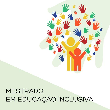Banca de DEFESA: DRIELEN DOS SANTOS MAGALHÃES
Uma banca de DEFESA de MESTRADO foi cadastrada pelo programa.DISCENTE : DRIELEN DOS SANTOS MAGALHÃES
DATA : 30/09/2024
HORA: 08:00
LOCAL: meet.google.com/ijf-ccru-auu
TÍTULO:
THE USE OF ASSISTANT TECHNOLOGY RESOURCES IN THE LITERACY OF STUDENTS WITH AUTISTIC SPECTRUM DISORDER FROM THE PERSPECTIVE OF TEACHER TRAINING
PALAVRAS-CHAVES:
Inclusive education, Assistive Technology, Literacy, Autism Spectrum Disorder (ASD)PÁGINAS: 120
GRANDE ÁREA: Ciências Humanas
ÁREA: Educação
SUBÁREA: Tópicos Específicos de Educação
ESPECIALIDADE: Educação Especial
RESUMO:
This research investigates the impact of using assistive technology on the literacy of children with Autism Spectrum Disorder (ASD), promoting educational practices that integrate assistive technology in teaching these students. The objective is to improve the pedagogical skills of educators and the learning process of students with ASD, through technological resources that promote inclusion and accessibility in the school environment. This research has as its guiding question the following question: How, in a context of continuing education, can the use and development of Assistive Technology resources as complementary materials to the textbook contribute to the literacy process of students with ASD? The methodology adopted is qualitative and exploratory, being a case study with action research characteristics. As an educational product, a training course for teachers was developed, entitled "Assistive Technology in the Literacy of Students with ASD", offered to first and second year elementary school teachers, who work in literacy classes, at the Municipal School of Basic Education Professor Tereza Lobo, in Cuiabá – MT, where the researcher works. This course was validated through practical activities with students with ASD in the literacy process, demonstrating that the educational product helped teachers implement more effective activities for these students' literacy.
MEMBROS DA BANCA:
Presidente - 91734007 - ELISANGELA DIAS BRUGNERA
Interna - 253540001 - ARIELE MAZOTI CRUBELATI
Externa à Instituição - ALINE FERNANDA VENTURA SAVIO LEITE - UFR



